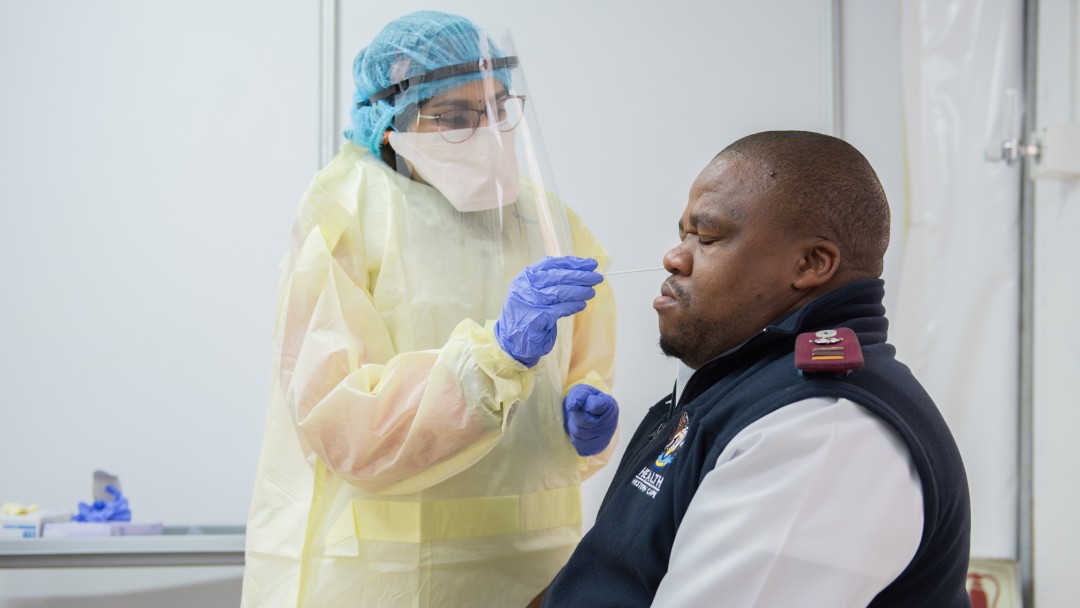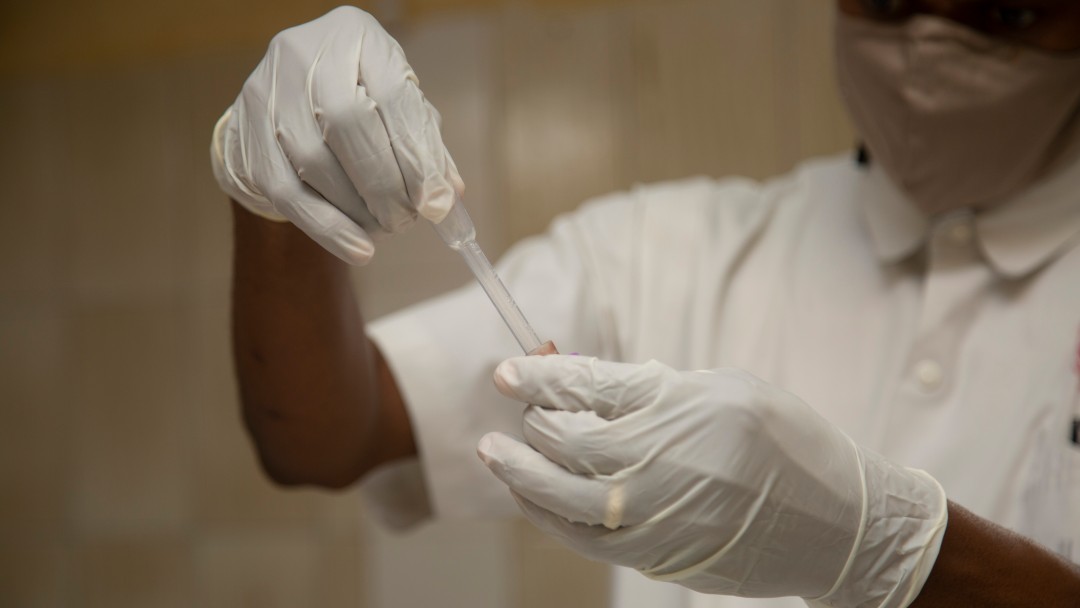News from 2020-08-31 / KfW Development Bank
Financial boost for corona research in low-resource developing countries
KfW supports the development of rapid tests and new drugs with BMBF funds

The signing of the contracts at the end of August was the starting point: With a total financial support from Germany of EUR 25 million, the aim is to develop reliable rapid corona tests, research the potential use of existing drugs for the treatment of COVID-19 and develop new drugs. This funding from the Federal Ministry of Education and Research (BMBF) will primarily benefit people in developing countries who hardly benefit from the latest research results because they cannot afford to pay for promising new products due to high prices.
For their fair corona research, the Drugs for Neglected Diseases Initiative (DNDi) will receive 15 million euros, the Foundation for Innovative New Diagnostics (FIND) 10 million euros. The two umbrella organisations are two of six so-called product development partnerships which the BMBF has been funding through KfW since 2011 with a total of 121 million euros for their global health research on poverty-related and neglected diseases.
Climatically and geographically adapted diagnostic procedures for rapid tests
The aim of the FIND product development partnership is to develop new adapted diagnostic procedures that also work in places where there is often only basic health care. "This is so important," explains KfW Director Christoph Tiskens, "because equipment and instruments developed for technically highly specialised clinics and hospitals in industrialised countries can hardly be used in our partner countries. Either they are too expensive or they are not adapted to the climatic or geographical conditions. A single grain of sand here can destroy the function of an expensive diagnostic instrument".
The BMBF funding is therefore intended to support FIND in bringing COVID-19 rapid tests onto the market as soon as possible, with the aim of producing reliable test results that can be communicated quickly. On the other hand, the development of digital tools - especially contact and tracing apps - will also be promoted.
Research into existing drugs for the treatment of COVID-19
DNDi, one of whose founding partners includes "Doctors without Borders", is investigating whether existing drugs have the potential to be used to treat COVID-19. Parallel to this, research is also being done into new drugs. "The procedure is based on key questions such as: Which group does the virus belong to, which product has already been effective and could also be effective with corona viruses? Sometimes only minor chemical changes are needed to make such a substance effective and tolerable," explains Dr Kai Gesing, KfW health expert. "This also involves developing new treatment strategies for milder Covid-19 courses in order to prevent severe courses from developing in the first place and thus reduce the number of people who have to go to hospital.
Focus on Africa
DNDi is initially focusing on Africa, where both medical staff and intensive care beds in hospitals are significantly less available than in Europe. The UN Economic Report for Africa fears that between 300,000 and 3.3 million people could lose their lives as a direct result of COVID-19. And the World Health Organisation (WHO) estimates that up to 44 million people could be infected if measures to contain the pandemic fail.

Initiative against the "90-10 Gap"
"Inexpensive, fast and safe diagnostics and medication should actually be available to everyone," explains KfW project manager. "However, it has always been the poorer population groups in developing countries who have lost out. Traditionally, globally active pharmaceutical companies invest around 90 % of their research funds in the development of new drugs for diseases from which only the wealthy ten percent of humanity suffers.
Against this "90-10 gap", about 20 so-called Product Development Partnerships (PDPs) were founded worldwide two decades ago. Outside the big pharmaceutical companies, they focus on global research and the fight against poverty-related diseases such as malaria, tuberculosis or African sleeping sickness.
First successes in 2019 and 2020
Since then, about half of these global product development partnerships have been supported by the Bill and Melinda Gates Foundation. Thanks in part to the foundation's long-term commitment, more and more successes in the fight against neglected diseases have been celebrated in the meantime: for example, a new drug against tuberculosis has been brought to market, one of only three in forty years. Moreover, for the first time such a PDP has also succeeded in developing a drug against sleeping sickness that does not cause severe side effects. Indeed, the only therapy used to date contained an arsenic compound.
"With German funding," hopes Christoph Tiskens, "we can now contribute to ensuring that effective diagnostic tools and drugs against COVID-19 will be available in 2022 - and that they will be cheap, safe and quickly accessible in resource-lacking developing countries. In this way, the Federal Republic of Germany is making an active contribution to fair research that explicitly takes into account the interests and needs of disadvantaged population groups".

Share page
To share the content of this page with your network, click on one of the icons below.
Note on data protection: When you share content, your personal data is transferred to the selected network.
Data protection
Alternatively, you can also copy the short link: https://www.kfw-entwicklungsbank.de/s/enzBWrMC.CTlA
Copy link Link copied